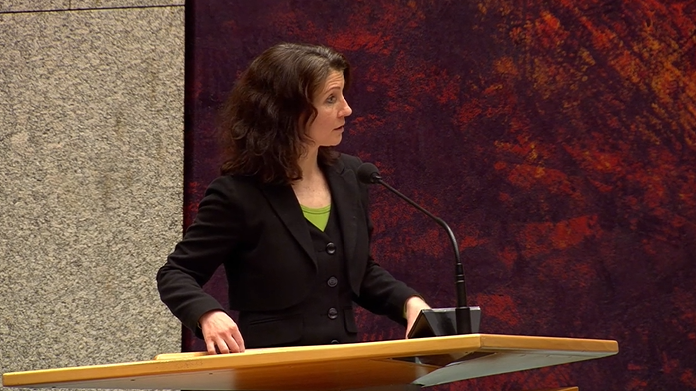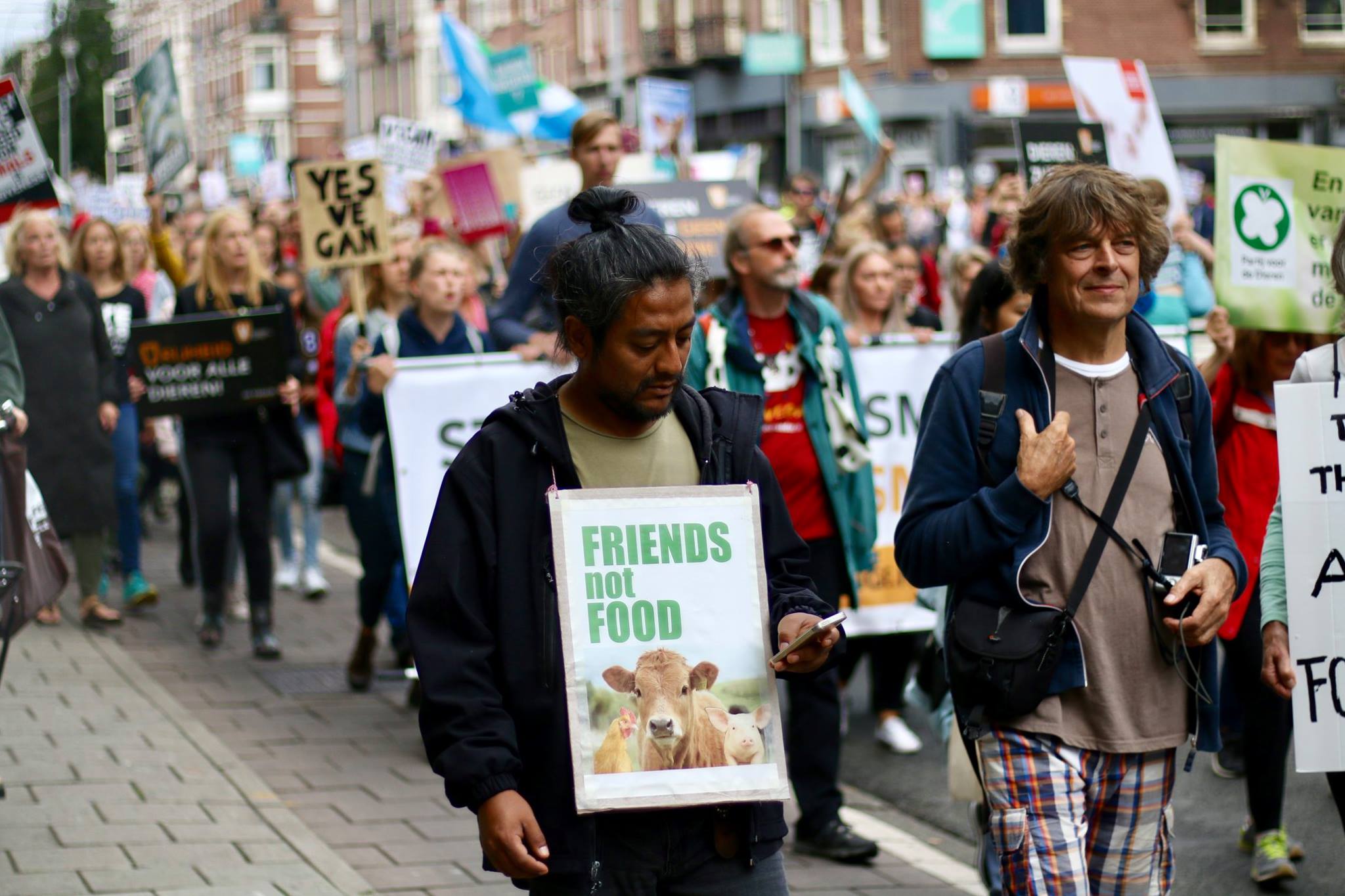Worldlog Esther Ouwehand
In my latest Worldlog of 2018, I announced that in the new year, the Dutch Lower House was going to have a fundamental debate on the suffering and dying of livestock animals. This debate took place two weeks ago, and last week the Lower House voted on the different motions the Party for the Animals had tabled in order to help the animals. We had asked our colleagues of other political parties in advance to show courage, to think about their responsibility for the fate of the over 64 million animals bred, used and killed in the Dutch livestock sector each year.
The debate was a historic one, as awareness in society is growing stronger every day. However, during the debate and subsequent votes, the politicians decided to stand on the wrong side of history once again. Confronted with the large-scale suffering of livestock animals on a daily basis, the majority of our fellow politicians did what they always do: deny and trivialise the facts, and demonise the messenger. Activists who had shown citizens what really goes on behind closed doors with animals, were dismissed as criminals; while it is these very activists who are trying to protect a key value of our democracy: the right to honest information. This right is under pressure as consumers are deceived by their government, supermarkets and the livestock sector: happy animals on brochures and packaging; exploited animals in the stables.

Esther Ouwehand during the debate on animal suffering in livestock sector
It is not the farmers, but the system that is under debate. A system in which people need to be constantly woken up by images of reality, and in which the supervisor fails in upholding the already weak rules. Undercover footage frequently shows pigs, social animals, trapped between bars, forced to watch their piglets being mutilated. Their tails are docked and their teeth clipped without the use of anaesthesia. Although our Minister of Agriculture denies that the practices shown in the images are representative of the sector, they are allowed by the Minister’s own law. The current rules allow for these horror practices.
Over 18 years ago, a majority of the political parties in the Netherlands made a promise that by 2022, the animal’s perspective would be a determining factor in the livestock sector: animals would be allowed to express their species-specific, natural behaviour. So, the good news is that basically, everyone in the Lower House is in agreement: today’s intensive livestock farming, the way the animals in this sector are bred, used and killed, is morally unacceptable. The animal’s intrinsic value is recognised by the Lower House as well as by the law.
However, when actual measures are needed to comply with this view, politicians refuse to take action. What they are actually saying, is “Yes, we recognise the animal’s intrinsic value, but not when it comes to a ‘production animal’. Not when we can use it to make money.” This means that the things you – quite rightly –cannot do to a dog and which will lead to a significant fine or punishment, are allowed by our politicians when it comes to cows, pigs, chickens and goats. Thereby, our Minister of Agriculture and the majority of our fellow politicians have created their own fundamental balancing act.
Animals are conscious, living creatures with feelings. People faced with the day-to-day reality of livestock farming immediately see that the system is utterly despicable. Almost 20 years ago, the animals were promised an end to this system. Now it is up to the Lower House to show they will keep that promise.
Moreover, addressing the issue of the livestock sector is the great taboo in politics, despite it being the most rational and effective solution to animal suffering, environmental damage and climate change. We need to rigorously reduce livestock numbers. It is inevitable. It is not just the Party for the Animals who believes that; it is scientists, and even the Dutch government’s most important advisory bodies. Standing up for animals is the ultimate solution to all the problems we are facing in the world. Not only will we prevent animal suffering, but it will help us solve the problems of climate change and biodiversity loss and defeat hunger in the world. A transition to a plant-based diet will generate a healthy, sustainable and animal-welfare friendly future.

March for Animal Rights in Amsterdam 2018
It is unwise and unfair to have farmers invest even more in a system that we already know to be unsustainable. Instead, we need to prepare our farmers for a plant-based future. That is why the Party for the Animals is proposing to stop the millions in subsidies currently going to Dutch livestock farming and use it instead to scale down the livestock sector. Stop the breeding of animals for slaughters and start the transition to plant-based.
The lobbying body of the intensive livestock sector is extremely powerful. But luckily, more and more people and even companies are making the transition to plant-based. The time is now. After hundreds (!) of years of only a small minority standing up for animals, people are now rapidly gaining more awareness. The animal rights movement is the fastest growing social movement of our time. Join us!
Next Thursday, #Powerplant, our scientific bureau’s newest documentary, will be released in Amsterdam. In the documentary, the opportunities for a plant-based society are examined, as well as how this can save our planet. The documentary will probably be shown around the world, so keep an eye on our social media pages for any updates!
This will be my last Worldlog for now. Our party leader Marianne Thieme has come back from sick leave and will share her experiences with you in the following Worldlogs.
To conclude: click here for a wonderful piece of stand-up comedy by American Peacher Lawson.
Kind regards,
Esther Ouwehand